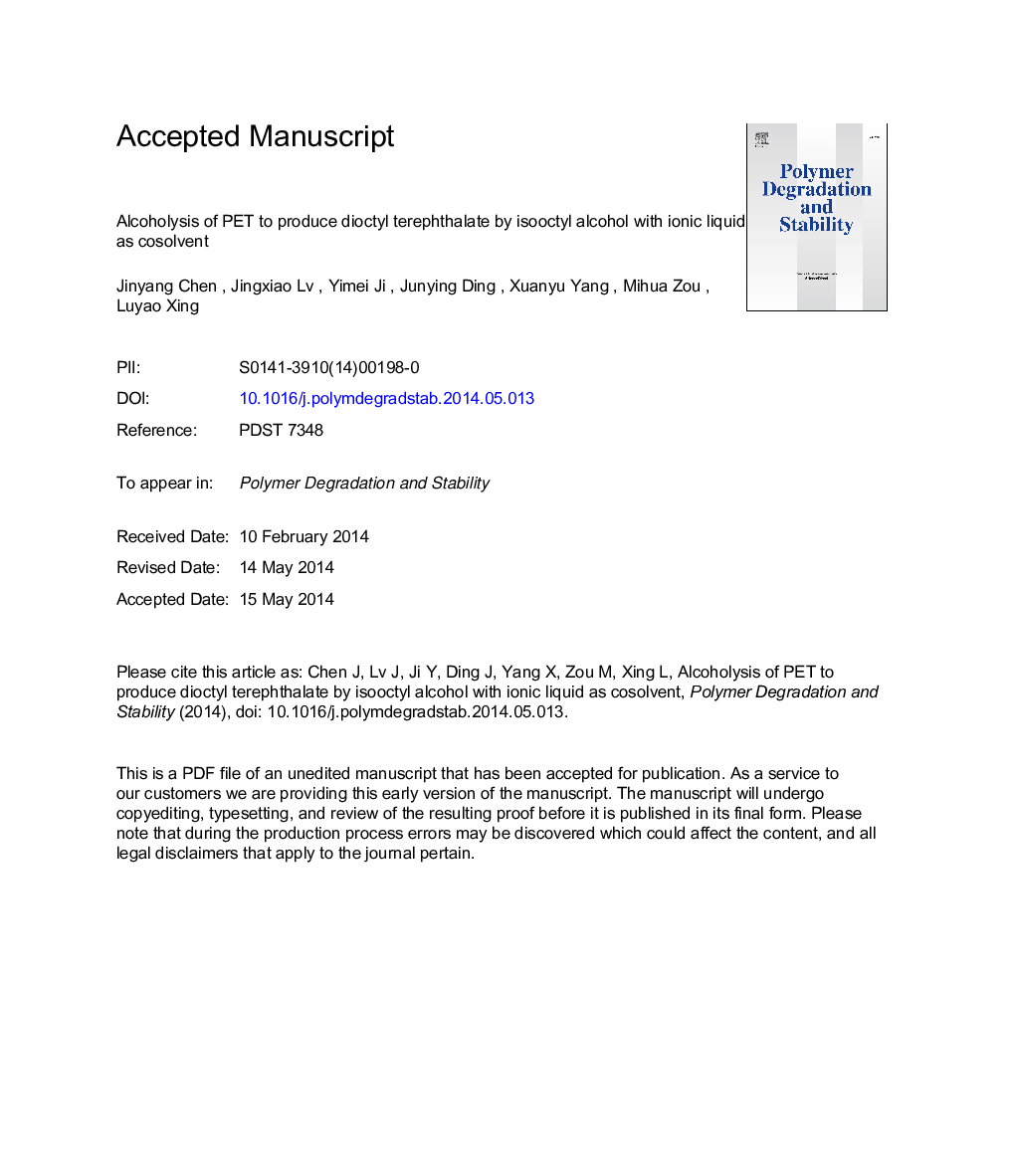| Article ID | Journal | Published Year | Pages | File Type |
|---|---|---|---|---|
| 5201834 | Polymer Degradation and Stability | 2014 | 30 Pages |
Abstract
Ionic liquid (IL) as cosolvent is a new way to accelerate polymer solvation degradation, and thus several common imidazole ILs have been studied as cosolvent to improve the alcoholysis of PET with isooctyl alcohol (2-EH) to produce dioctyl terephthalate (DOTP) at the reflux temperature (190ï½200 °C). Owing to its best effect and relatively inexpensiveness, [Bmim]Cl has been adopted to assist the alcoholysis. Both tetrabutyl titanate (Ti(OC4H9)4) and zinc acetate (ZA) have good catalysis for the alcoholysis, but because ZA is solid and difficultly dissolved in alcohol and IL, it is easily to be separated out and more feasible to be used as catalyst. With [Bmim]Cl and ZA as cosolvent and catalyst, the optimal alcoholysis of PET has been determined to be as follows: reflux temperature, reaction time 5 h, weight ratio of IL:2-EH:PET 2:2:1 and weight ratio of catalyst/PET 1.2%, and then the degradation rate of PET is almost 100% and the yield of DOTP is 93.1%. Comparing with traditional alcoholysis without IL as cosolvent, the reaction time decreases greatly from more than 10 h to several hours. Furthermore, the IL has been repeated four times and the degradation rate of PET and the yield of DOTP nearly have not been changed.
Keywords
Related Topics
Physical Sciences and Engineering
Chemistry
Organic Chemistry
Authors
Jinyang Chen, Jingxiao Lv, Yimei Ji, Junying Ding, Xuanyu Yang, Mihua Zou, Luyao Xing,
